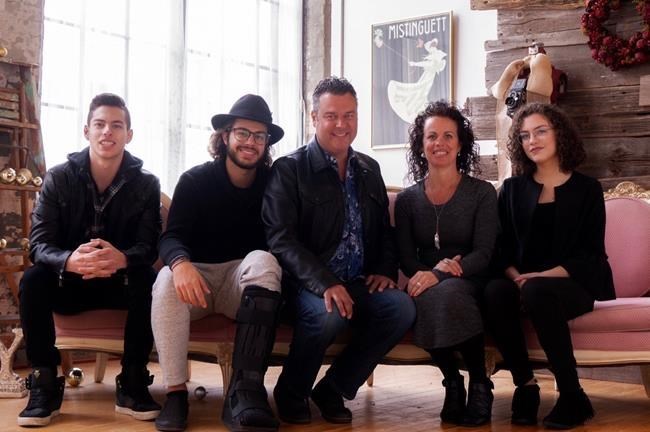TORONTO — When it comes to her family's financial future, Kim Petrie says the arrival of the COVID-19 pandemic has erased any certainty about what lies ahead.
Over just a few days, the Hamilton resident watched significant changes ripple through her household of five.
Her three children — ages 17, 20 and 22 — live at home, but each lost their job in the restaurant industry on Monday. Now Petrie wonders if her casual part-time role as a mortgage specialist's assistant could also be in question if the economy buckles. That would leave her family to lean on her husband's commission-based paycheque in a market that's caught in the grip of fear and uncertainty.
Other hurdles lie ahead for her family too, since her daughter was planning to work through the summer to save money for university in September. Her attention has shifted to applying for unemployment in the short term.
"At the moment, we're feeling a little bit numb," Petrie said.
"It's almost like somebody's going to come (from) behind a screen and say, 'Oh, nothing ever happened and we're back to reality.' But we know that's not the case."
Like most Canadians, Petrie's life has been upended by COVID-19, and she's hoping an $82-billion stimulus package unveiled by the federal government may soften the blow.
Finance Minister Bill Morneau outlined rough details on Wednesday of a plan that would introduce wage subsidies for small businesses, laid off employees who don't normally qualify for employment insurance, and families with child care expenses.
But exactly how the benefits will be rolled out is still unclear and the clock is ticking for many Canadians who feel they'll need support if the fallout of COVID-19 drags on for months.
"There's a lot of uncertainty, fear," Petrie said, "Without knowing how long this is going to go, or how long can we sustain it."
"The stress level in the house right now is under control because I don't think we've actually seen the effects. Everybody's getting their final paycheques. In the next couple weeks is when we're going to see it."
Frank Russo is asking similar questions about his future. The Toronto comedian lost two bartending jobs on Monday and his entire slate of performances was wiped off the calendar.
"Nobody knows when this will all be over, so everyone just carpet-cancelled everything," he said.
He's also facing a lease that expires in late April, which means his landlord is looking to have prospective tenants check out his living space.
"You're not supposed to ride a streetcar, but now I'm supposed to let people into my house I don't know," he said with a chuckle.
It's also a challenge for him to be on the hunt for a new place. "Nobody really wants to do viewings for apartments, so it's a really hard time to find a place to go."
Russo said he'll rely on friends in other cities if he faces dire circumstances, or return to his parent's house, though lingering questions about how COVID-19 spreads has left him feeling cautious for their sake, especially considering he had shifts inside a nightclub up until last weekend.
"My mom works at a retirement village and my dad's had brain surgery this year, so I don't want to get anyone sick," he added.
Russo said being a comedian has taught him a few lessons about frugal living. He hopes that will carry him through the coming weeks or months of turbulence, though he feels extra pressure after moving from Halifax to Toronto where rent is near record levels.
"I appreciate everything the government is doing for us, but I have no idea how half of my nothing paycheque would provide me a chance to live in Toronto," he said.
"If I was in Halifax in the same situation all my bills would be infinitely lighter... there's kind of no margin for error in Toronto."
The lack of clarity about the future has hair stylist Krysten-Ashley Garrod wondering how she'll emerge on the other side of the COVID-19 shutdown. The salon where she works is shut down for two weeks, cutting her off from money she would've made from her bookings.
"I feel like it's responsible to close," she said.
"I'm concerned with the amount of people out there that aren't taking this seriously. What if this two weeks becomes another three weeks because people are being idiots right now? What if it becomes even longer?"
But still, she worries about how extended closures could impact small businesses across the country, especially since many of them don't have the overhead to survive without revenues coming in.
For herself, Garrod hasn't paid into employment insurance because she believed she would never be out of work.
"I've always assumed if a salon closes or I can't work in a certain space I can just go to another," she said.
"That fact that I can't do my trade right now is just completely out of the blue. I never foresaw this happening at all."
Garrod plans to return to the salon in a little over a week, and has started calling her clients to reschedule appointments after reopening on March 31.
"With how everything is changing so rapidly I don't even know if that is possible," she said, adding that if closures drag on longer, eventually a "snowball effect" of appointment backlogs could lead some clientele to go elsewhere.
"We can get by for the next two weeks, but after that it gets complicated."
This report by The Canadian Press was first published March 19, 2020.
Follow @dfriend on Twitter.
David Friend, The Canadian Press



